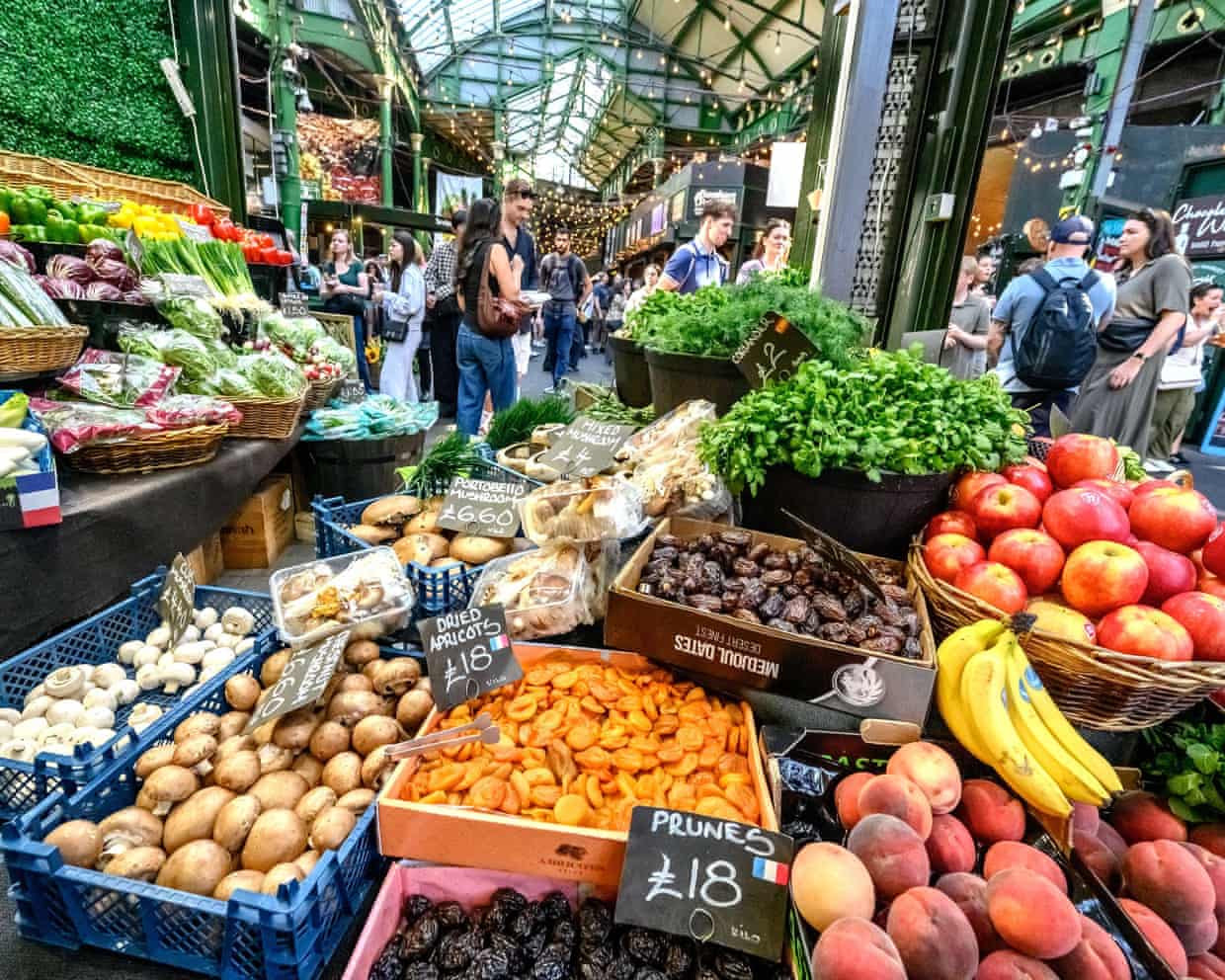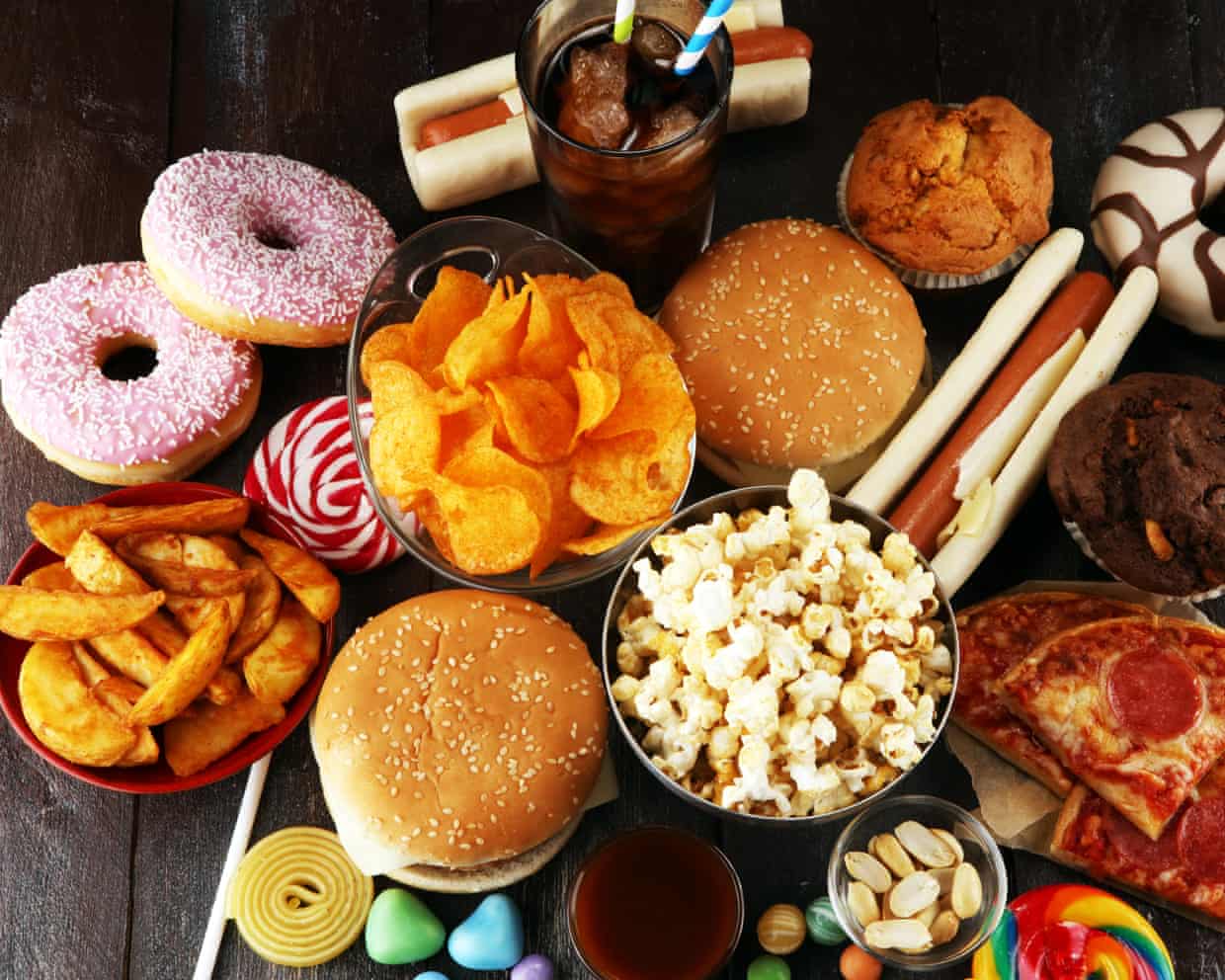UK inflation eases for first time in five months to 3.6% before crunch budget

UK inflation fell to 3.6% in October, easing the path for the Bank of England to cut interest rates after the chancellor Rachel Reeves’s make-or-break budget next week.The Office for National Statistics (ONS) said annual inflation as measured by the consumer prices index cooled for the first time in five months, falling back from a peak of 3.8% over July, August and September.The latest snapshot showed gas and electricity prices rising at a slower pace than a year earlier contributed most to the decline, alongside a fall in hotel prices.
However, this was partially offset by food and inflation accelerating to 4.9%.The decline matched City economists’ forecasts and was below the 3.7% rate predicted by the Bank, but was still well above the government’s 2% target.Reeves has vowed to cut living costs in her highly anticipated tax and spending statement on 26 November, including measures to bring down the inflation rate to smooth the path for the Bank to cut interest rates.
The chancellor said: “This fall in inflation is good news for households and businesses across the country, but I’m determined to do more to bring prices down,“That’s why at the budget next week I will take the fair choices to deliver on the public’s priorities to cut NHS waiting lists, cut national debt and cut the cost of living,”On Tuesday evening, Reeves said she had asked the UK competition watchdog to look into the rising cost of private dental treatment amid growing concern about soaring prices,The chancellor is also understood to be considering cutting the 5% VAT rate on domestic energy bills, a move that could save bill payers about £80 a year and cost £2,5bn to introduce.
Last week, the Bank opened the door to a post-budget cut in borrowing costs in December after it signalled inflation had probably peaked amid mounting fears over the strength of the economy.Threadneedle Street forecasts inflation is on track to ease to about 2.5% next year, before returning to its 2% target over the course of 2027.After the release of the latest figures, the pound fell by about 0.2% against the dollar to $1.
31 as traders raised bets on a December rate cut.Financial markets shifted to reflect an 85% chance of a quarter-point cut from the current level of 4%.Strengthening the case for a reduction in rates from as early as next month, core inflation – which excludes food and energy and is closely watched by the Bank – fell from 3.5% in September to 3.4%.
Sign up to Business TodayGet set for the working day – we'll point you to all the business news and analysis you need every morningafter newsletter promotionBorrowing costs have been cut five times since Labour came to power in July 2024, with the last reduction in August, while Reeves has talked up the importance of lower rates as a critical route to supporting households with living costs.However, the UK continues to face the highest inflation rate in the G7, with households under pressure from fast-rising food prices in particular.Mel Stride, the shadow chancellor, said: “Inflation has been above target every single month since Labour’s last budget, leaving working people worse off.”Highlighting the pressure on families, rising prices for bread, cereals, meat and vegetables drove up annual food and drink inflation from 4.5% in September to 4.
9% in October.Economists said it was possible the headline inflation rate could rebound in November.However, rising unemployment and slowing wage growth is expected to encourage the Bank to cut rates, depending on the outcome of the budget.Suren Thiru, the economics director at the Institute of Chartered Accountants in England and Wales, said: “Though the conditions for a December interest rate cut are falling into place, the budget is a last obstacle as rate-setters will want to gauge the effect of the policies announced before authorising another rate reduction.”

Ultra-processed food linked to harm in every major human organ, study finds
Ultra-processed food (UPF) is linked to harm in every major organ system of the human body and poses a seismic threat to global health, according to the world’s largest review.UPF is also rapidly displacing fresh food in the diets of children and adults on every continent, and is associated with an increased risk of a dozen health conditions, including obesity, type 2 diabetes, heart disease and depression.The sharp rise in UPF intake worldwide is being spurred by profit-driven corporations using a range of aggressive tactics to drive consumption, skewer scientific debate and prevent regulation, the review of evidence suggests.The findings, from a series of three papers published in the Lancet, come as millions of people increasingly consume UPF such as ready meals, cereals, protein bars, fizzy drinks and fast food.In the UK and US, more than half the average diet now consists of UPF

Plastic surgeons wrestle with requests for ‘Mar-a-Lago face’: ‘You’re going to look like Maleficent’
The puffy, artificial look is rising in popularity - thanks to Maga elite such as Kristi Noem and Matt GaetzPicture a plastic surgeon’s office. You might imagine a sleek Los Angeles practice, with discreet entrances meant to conceal celebrities from the paparazzi. Maybe a Dallas high-rise, where monied housewives spend on postpartum “mommy makeovers”. Or a Miami location, where influencers and OnlyFans stars film TikToks of their BBLs. One city you might not think of is Washington DC

‘I knew I was starting to have a seizure’: women describe lasting effects of being ‘choked’ during sex
When Sophie* woke up on the floor after having a seizure, it took a while before she could comprehend that it had been caused by a man strangling her during sex.“I blacked out, my legs were kicking, I broke a glass,” she says. At 19, it was the first and only time anything like that had happened to her. “When I came to, I couldn’t work out who he was, where I was, what was going on. And it was utterly terrifying

Nearly half of sexually active young people in UK have experienced strangulation, study shows
More than two in five sexually active under-18s in the UK have either been strangled or strangled someone during sex, research has found, despite the serious dangers of the practice.“Choking”, as it is commonly known, has become normalised in young people’s sexual habits, the study by the Institute for Addressing Strangulation (Ifas) showed, with 43% of sexually active 16- and 17-year-olds having experienced it.More than half of people under the age of 35 have experienced it, with nearly a third wrongly believing there are safe ways to strangle someone.The survey also revealed a crisis of distress among those on the receiving end, with 36% saying they felt scared during the experience and 21% suffering dangerous physical symptoms, including dizziness and even loss of consciousness.It also showed a consent gap, with more perpetrators of strangulation believing their partner had consented to it in advance than those who had experienced it, with 1% saying they had explicitly not agreed to it the last time it happened

Children in care who lash out may no longer face automatic arrest under UK review
Vulnerable young people in care who assault staff or damage property will not automatically be arrested by police or charged, under proposals intended to reduce the excessive criminalisation of looked-after children.A government review will examine how children in state care who exhibit challenging behaviour can be offered targeted support such as trauma counselling rather than being punished through the criminal justice system.The aim is to restrict the “over-policing” of looked-after young people and reduce disproportionate numbers who offend while in care. Children in care are 10 times as likely to receive a caution or conviction than those not in care.The review, expected to report in the spring, aims to tighten an existing protocol introduced by the previous government in 2018

Woman killed herself after south London hospital neglect, coroner concludes
A woman killed herself after a south London psychiatric unit failed to search her possessions adequately, a coroner has concluded.Michelle Sparman, a personal trainer and call dispatcher for the Metropolitan police from Battersea, south-west London, died on 28 August 2021 at Kingston hospital, four days after trying to take her own life.The assistant coroner, Bernard Richmond KC, concluded that Sparman, 48, died of a hypoxic brain injury, determining she had died by “suicide whilst the balance of her mind was disturbed, contributed to by neglect”.He determined four probable causes of death: her struggles with anxiety and depression, including impulsiveness; a “difficult relationship” with her ex-partner, including “intemperate and excessive texting” from him, which called into question her mental health and fitness to be a mother; her “justifiable feelings of abuse” as a result of his behaviour, and inadequate searching on leaving and entering Rose Ward, a locked 20-bed female-only mental health unit at Queen Mary’s hospital in Roehampton.He cited her perimenopausal symptoms and financial and professional problems as possible causes

David Nicholls to adapt The Secret Diary of Adrian Mole Aged 13¾ for BBC

‘People still blame me for their perforated eardrums’: how we made the Tango ads

Memoirs, myths and Midnight’s Children: Salman Rushdie’s 10 best books – ranked!

High art: the museum that is only accessible via an eight-hour hike

Spanish Armada-era astrolabe returns to Scilly after mysterious global journey

My Cultural Awakening: I moved across the world after watching a Billy Connolly documentary